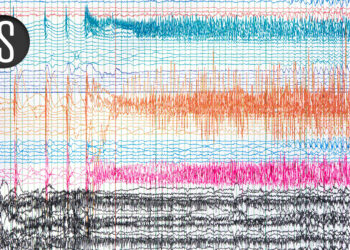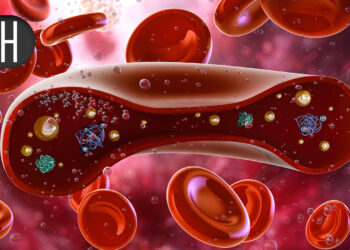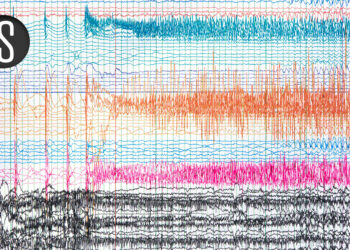
Different people may benefit from some antidepressants over others, depending on their side effects
Mariia Veklenko/Getty Images
Antidepressants vary greatly in the side effects they cause – from weight gain to weight loss and blood pressure changes. This may need to be taken into account when doctors decide which of the many drug options, which can be lifesaving, would be best for each individual.
About 1 in 10 people in Europe and the US take antidepressants for conditions such as depression and anxiety. Withdrawal symptoms may be less common than we thought, but some studies hint that there can also be physical side effects while you are taking these drugs. It just isn’t clear which specific drug causes which kind of side effect.
Drilling deeper into the data, Toby Pillinger at King’s College London and his colleagues analysed results from 151 randomised-controlled trials and 17 US Food and Drug Administration reports. These covered 30 antidepressants whose effectiveness and side effects were compared against placebos over around an eight-week course of treatment for various psychiatric conditions.
“The beauty of these studies is that they were all placebo-controlled and randomised, so we can be confident that the differences that we are showing are due to the drug,” says Pillinger.
The researchers found that some of the drugs were linked with weight loss and others with weight gain. Maprotiline, for example, was linked to an average weight gain of about 1.8 kilograms, whereas agomelatine was linked to losing about 2.4 kg.
The study also showed that the drug fluvoxamine was linked to heart rate slowing by 8 beats per minute (bpm), on average, but nortriptyline increased it by 13 bpm. The latter also cut systolic blood pressure – your blood pressure when your heart is contracting – by between 3 and 7 millimetres of mercury (mmHg), while doxepin pushed it up by almost 5 mmHG, which could have knock-on effects on overall health. “Each 1 mmHg increase in your blood pressure, if you have high blood pressure, increases your risk of a stroke by 1 per cent,” says team member Oliver Howes, also at King’s College London.
Other drugs, such as paroxetine, duloxetine, desvenlafaxine and venlafaxine, were associated with increases in cholesterol. Whether these side effects worsen, improve or plateau beyond eight weeks is unclear.
Despite observational studies raising concerns that antidepressants affect levels of electrolytes, such as sodium, in blood, which could impact heart rhythms, “our study showed that actually there weren’t any problems at all with sodium”, says Pillinger.
Of the more than 92 million doses of antidepressants prescribed in England last year, about 85 per cent were either sertraline, mirtazapine, fluoxetine, amitriptyline, citalopram or venlafaxine. Four of these were found to have a relatively good profile for most of the examined factors, but amitriptyline was seen to increase weight, heart rate and blood pressure, while venlafaxine raised heart rate, blood pressure and cholesterol.
“This is very informative for both physicians and patients,” says Mahyar Etminan at epidemiology consulting group Epilytics in Vancouver, Canada. “This data can be put into an app, so, for example, if somebody has high cholesterol or cardiovascular problems, the app can tell the physician which one to avoid. This will give physicians more bandwidth to choose the antidepressant that best fits a patient.”
Pillinger says his team is developing a digital tool with a drop-down menu of an antidepressant’s common side effects, so medics can gauge which to avoid, or even which to choose, for example if weight loss would be beneficial. “It’s all about finding the right molecule for the right person and engaging in personalised prescribing,” says Pillinger.
But John Ioannidis at Stanford University in California says the results may be biased if the team only included studies that showed side effects. Others may have not found side effects, which they didn’t report, meaning this data wasn’t included in the meta-analysis.
He also points out that people generally take antidepressants for longer than 8 weeks; sometimes for years. “Very different, long-term studies would be needed to show the presence and relevance of such outcome effects, if any, in the long-term,” says Ioannidis.
In response, Pillinger says there is “always the risk of bias” but “we can be relatively confident that we have gathered most of the data that is out there”.
He accepts an analysis of longer-term studies is needed, which he says his team is working on, and points out that about 75 per cent of the participants in the existing trials were white. But he thinks the patterns the team spotted will show up in longer-term studies and will probably apply to other groups.
Previous studies suggest that some antidepressants, such as venlafaxine, are associated with increased long-term blood pressure, he says. Weight gain that occurs quickly can also last, he says. “Once you put the weight on, it’s hard to get rid of it.”
People on antidepressants who are worried about side effects shouldn’t stop their treatment, though, says Howes, because these medications can be very effective. “This is nuanced; it’s an individual decision, reflecting an individual’s risk profile and the benefits. If they are concerned, this is something that we would recommend that they talk to their doctor about.”
Topics:
- medical drugs /
- depression
Source link : https://www.newscientist.com/article/2500834-antidepressants-vary-widely-in-their-physical-side-effects/?utm_campaign=RSS%7CNSNS&utm_source=NSNS&utm_medium=RSS&utm_content=home
Author :
Publish date : 2025-10-21 23:30:00
Copyright for syndicated content belongs to the linked Source.













